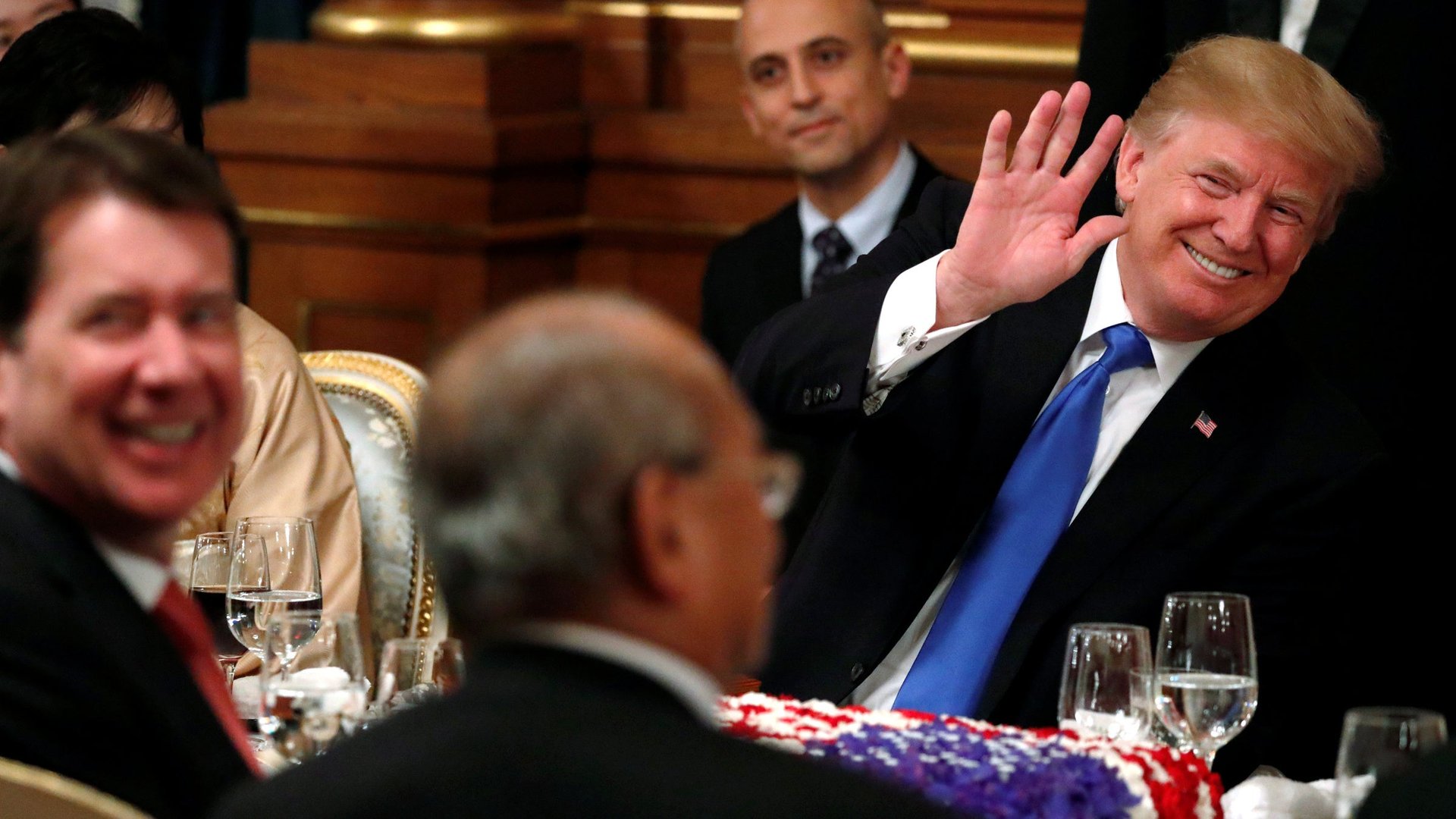The Trump administration is hiding the truth about a plan to skim workers’ tips
When Americans leave a tip at the table after dinner at a restaurant, they expect it will end up in the hands of servers and bussers, not the owner’s wallet—but that’s exactly what a new rule proposed by the US Department of Labor will result in, according to an analysis being withheld by the Trump administration.


When Americans leave a tip at the table after dinner at a restaurant, they expect it will end up in the hands of servers and bussers, not the owner’s wallet—but that’s exactly what a new rule proposed by the US Department of Labor will result in, according to an analysis being withheld by the Trump administration.
The new rule is ostensibly designed to allow tips to be pooled and shared among workers; for example, waitstaff at a restaurant could share a percentage of their total tips with cooks and dishwashers, helping redress pay inequity that is hurting the broader restaurant industry.
That hidden catch in the new rule? Restaurant owners would be allowed to keep the tips for themselves as long as they are paying workers the federal minimum wage of $7.25. (Some tipped workers receive a much lower hourly wage, just over $2 an hour in some states, and they would not fall under this proposal.)
A minimum wage, however, is rarely a living wage in the United States, and most tipped workers depend on gratuities to cover the cost of living. If their bosses are given the ability to siphon off a share of their tips, will they?
Bloomberg Law is reporting that a study attempting to estimate the impact of this rule on workers has been quashed. The study suggested that billions of dollars in tips would be diverted to owners’ pockets, and labor secretary Alex Acosta’s staff ultimately decided not to release it to the public while the rule can be commented on.
The Economic Policy Institute, a left-leaning think tank, has released its own study of the issue, which suggests that $5.8 billion in tips would be taken from workers by owners each year, a little more than a 16% of all annual gratuities.
Many restaurants are already facing challenges paying their employees. Some are ending gratuities entirely and switching to a standard service fee to be paid to servers and kitchen staff alike. This rule is framed as a way to make it easier for restaurants to adopt flexible payment mechanisms for their workers, but in a typically Trump administration twist, it will likely provide an avenue for their compensation to be cut significantly.
The National Restaurant Association, a trade group, has been a key organization pushing for the rule, which will allow their members to capture a larger chunk of the money coming into their businesses. Critics of the proposal, including former Obama administration officials, say that Acosta’s decision to hide the economic analysis is intended to make it easier for him to authorize the final rule this year.
The one silver lining for servers? In withholding its analysis, the department may have violated procedures around how its rules are made, providing ammunition to the inevitable lawsuit challenging the final decision.